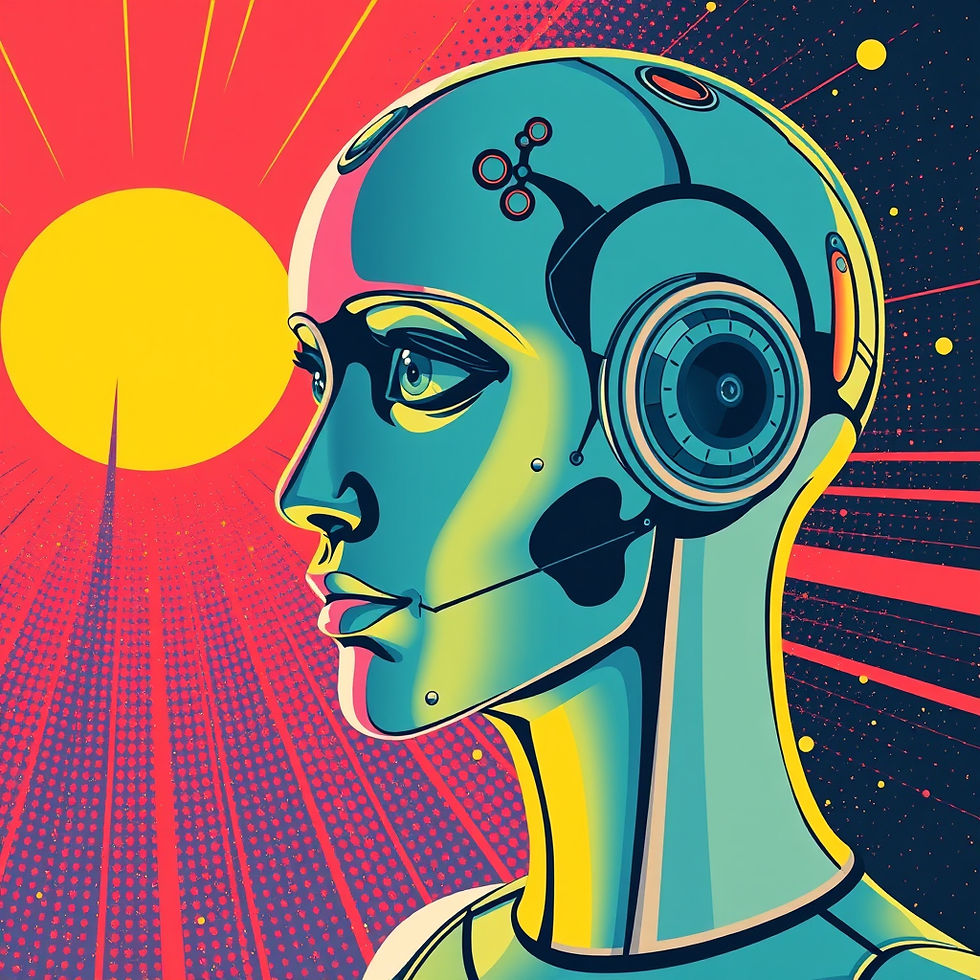#BayesianAi: The Future of Intelligent Decision-Making (1/n)
- Kat Usop

- Jul 4, 2023
- 2 min read

In the realm of artificial intelligence, Bayesian AI is a game-changer that brings a fresh perspective to the table. Combining the power of probabilistic reasoning with machine learning, Bayesian AI revolutionizes decision-making processes and opens up new avenues for intelligent systems.
What is Bayesian AI?
Bayesian AI is a branch of artificial intelligence that uses Bayesian probability to make inferences. Bayesian probability is a way of reasoning about uncertainty that takes into account prior knowledge. This makes Bayesian AI well-suited for problems where there is a lot of uncertainty.
Why is Bayesian AI significant?
There are several reasons why Bayesian AI is significant:
First, it is a more principled approach to AI than traditional approaches. Traditional AI approaches often rely on hand-crafted features and heuristics, which can be brittle and difficult to generalize. Bayesian AI, on the other hand, uses probability to learn from data, which makes it more robust and adaptable.
Second, Bayesian AI is more transparent than traditional AI approaches. This is because Bayesian models make explicit their assumptions about the world, which makes it easier to understand how they work and to diagnose problems.
Third, Bayesian AI is more scalable than traditional AI approaches. This is because Bayesian models can be easily adapted to new data sets and new problems.

Applications of Bayesian AI
Bayesian AI has been applied to a wide variety of problems, including:
Natural language processing: Bayesian AI has been used to develop language models that can understand the meaning of text and to generate text that is both grammatically correct and semantically meaningful.
Medical diagnosis: Bayesian AI has been used to develop systems that can diagnose diseases more accurately than human doctors.
Financial forecasting: Bayesian AI has been used to develop systems that can forecast financial markets more accurately than traditional methods.
Robotics: Bayesian AI has been used to develop robots that can learn from their environment and make decisions in uncertain situations.
Future of Bayesian AI
The future of Bayesian AI is very bright. As the amount of data available to AI systems continues to grow, Bayesian AI will become increasingly important. This is because Bayesian models are able to learn from data more effectively than traditional AI models. (more on the Bayesian AI models in later posts...)
Bayesian AI is not limited to academic research, though it is undeniably popular in the world of pure research. The usual suspects, Deep Tech Companies, are actively utilizing this gem of an AI model:
Companies that actively use Bayesian AI | Top Use Cases |
|
|
In addition, the increasing availability of computing power will make it possible to develop more complex Bayesian models. This will allow Bayesian AI to be applied to a wider range of problems.
In a nutshell, Bayesian AI is a powerful paradigm that unlocks the potential for intelligent decision-making in the face of uncertainty. By embracing probabilistic reasoning, continuous learning, and adaptability, it provides a solid foundation for robust and efficient AI systems. As we journey towards an increasingly complex and uncertain world, Bayesian AI promises to be a guiding light, empowering us to make smarter decisions and harness the true potential of artificial intelligence.

Want to acquire this skill? stay tuned!



Comments